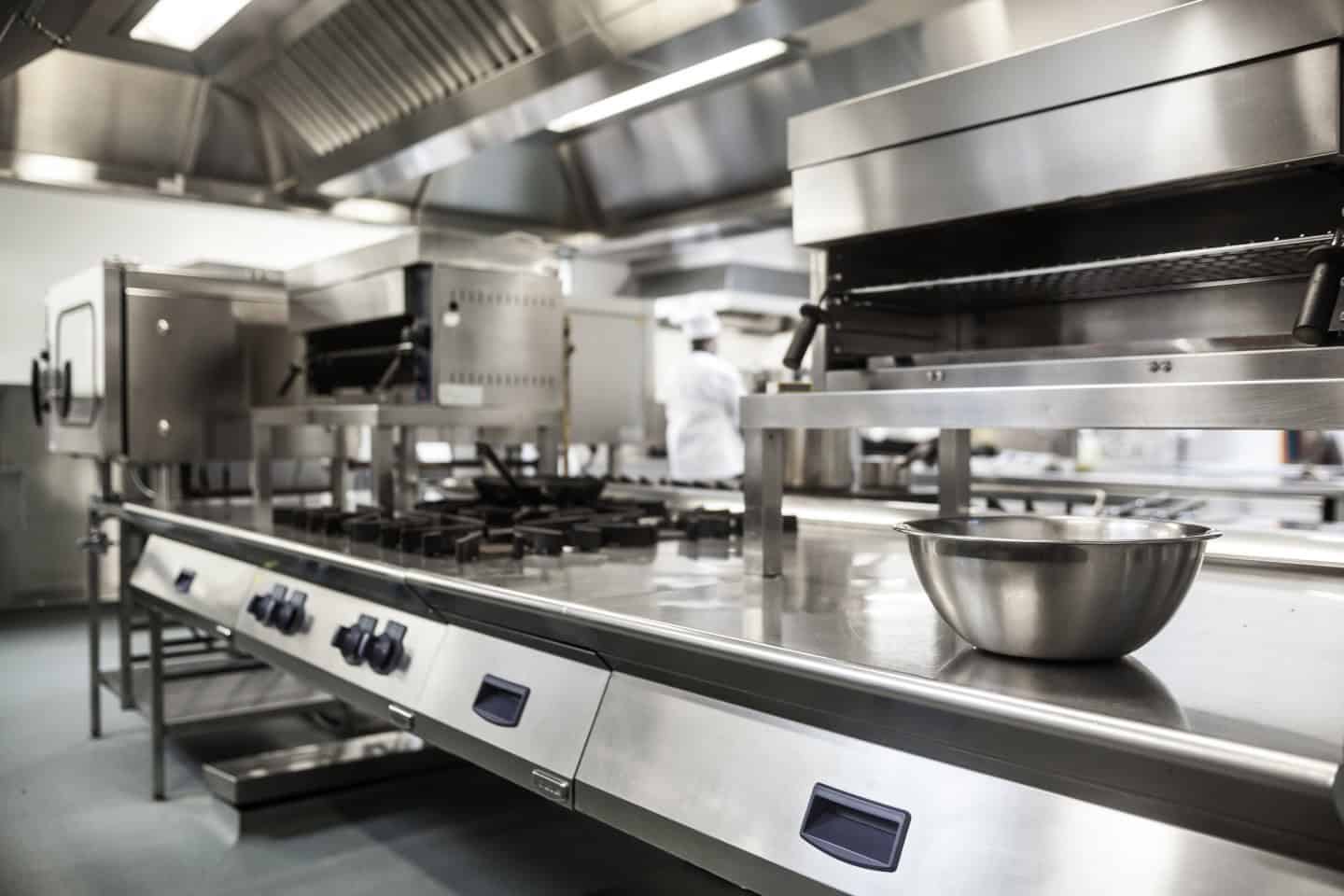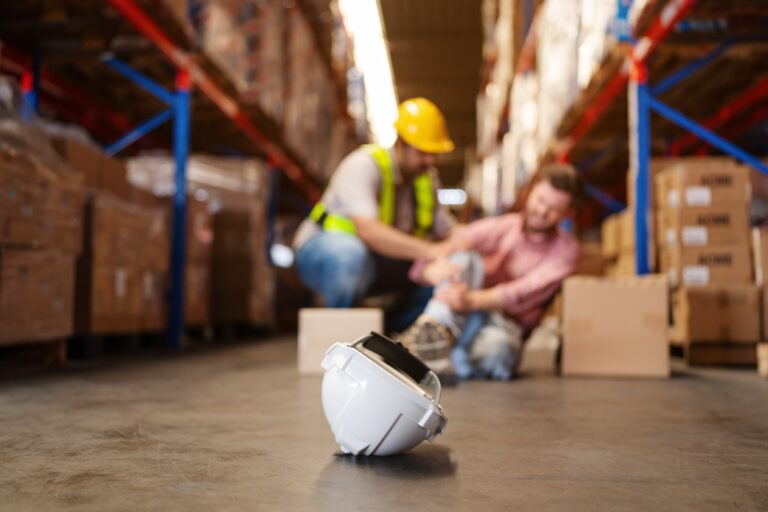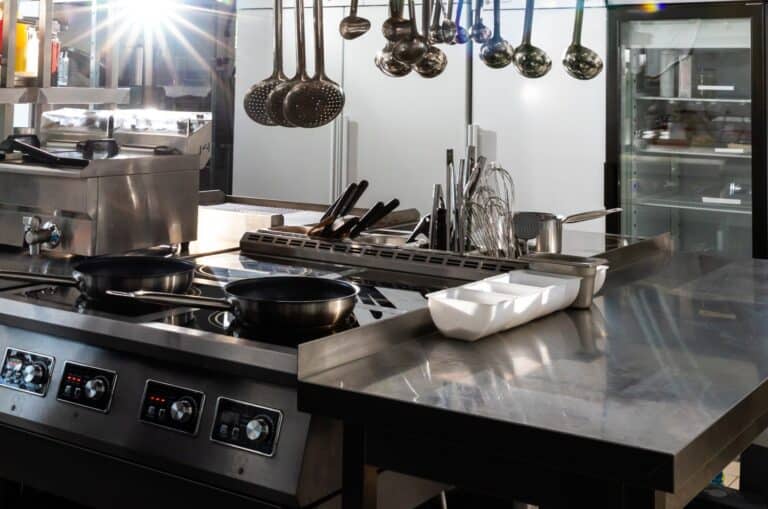
Accidents in Professional Kitchens
Working in a professional kitchen is physically and mentally demanding. Inevitably, accidents and injuries do occur from time to time. Sometimes no one in particular is to blame and more often than not, the injuries sustained are minor and do not have lasting consequences. However, sometimes an accident is someone else’s fault in full or in part and on occasion the injuries sustained are serious and life changing.
It is essential that those working in professional kitchens are aware of the legal options available to them if something goes wrong at work that could have been prevented. This is important, as you may have sustained life changing injuries and be unable to work. A personal injury claim is not intended to be used as a method of punishment for those individuals who may have directly or indirectly caused your accident. It is used to investigate the circumstances of what has happened, and identify whether or not this was due to negligence on one or more persons behalf.
Types of accidents and common injuries
In a busy and high pressurised environment such as a professional kitchen, risks to an employee’s health and safety will inevitably arise. Chefs are using sharp knives, working long hours, and handling hot equipment and liquids. Inevitably, accidents will occur that can’t be fully guarded against.
The types of injuries that can be sustained are of course wide ranging, and their impact will depend on the particular individual and circumstances. Serious injuries that can be suffered include orthopaedic and soft tissue injuries (often following a slip or trip), lacerations, amputation (often of fingers), burns, scarring and psychological damage.
Concerns and considerations
As an employee working in a professional kitchen, you may be concerned about the prospect of making a claim against your employer, especially if you are still employed by them. You may be worried about how this may be perceived and whether you will lose your job, or be treated differently when you return. These are understandable concerns however, all companies are required by law to have employers liability insurance to account for accidents and injuries that will inevitably occur from time to time.
Should you make a personal injury claim, it will be against the company and their policy of insurance, not against any named individual. In addition, you are also protected by employment law and you may be able to take action against your employer, should they treat you differently or terminate your employment as a result of pursuing a claim.
Further to this, personal injury claims can often result in positive changes to company policy, procedures and behaviours that can help prevent further accidents from taking place. This benefits everyone working in a professional kitchen.
If you have sustained personal injury whilst working in a professional kitchen and you have not already done so, you need to report the accident to your supervisor or manager and make sure that it is fully documented. If there are any witnesses to the incident, make sure you obtain their details, as their account could be important in assisting you to prove your case. If you can, it is also advisable to take pictures of the accident scene or work equipment involved, even if this is some time after the event. You should also seek medical assistance as soon as possible to assist your recovery, and to allow an appropriate record to be made of the injuries you have suffered.
The law
Ultimately, not every accident that occurs in a professional kitchen can be avoided. An employer is not expected to completely eradicate all risks to the health and safety of their employees, but they do have a duty of care to minimise these risks. This in turn reduces the risk of an employee sustaining an injury at work.
Under health and safety law, the primary responsibility for health and safety in the workplace falls to an employer.
All employees are owed a duty of care by their employer who must adhere to workplace regulations to ensure, in so far as they are able; the safety of their employees. Employers should provide their employees with relevant health and safety training, specific training in relation to use of equipment and appropriate personal protective equipment. A risk assessment and method statement should be prepared in respect of the operation of work equipment.
As an employee you have a duty of care to take reasonable care for your own safety, as far as possible in the workplace, and it is no different in a professional kitchen. You should make sure you attend relevant training, familiarise yourself with the company’s health and safety policies, carry out proper risk assessments and method statements where asked (if this is part of your role) and familiarise yourself with those prepared by your superiors. Your employer should provide you with relevant personal protective equipment (PPE), unless otherwise arranged and you should make sure that this is worn at all relevant times. You should also report anything that you see in the kitchen that might endanger the health and safety of yourself or others.
You are unlikely to be able to make a successful claim if you have knowingly undertaken a risk contrary to instruction and training. However despite this, there may be circumstances where your employer is primarily at fault but your actions have also played a part in the outcome, this is called being contributory negligent. Even if you are deemed to have been contributory negligent, you may still have a claim although the amount of compensation you will receive will be reduced by your percentage contribution to the accident. For example, if you are found to be 30% at fault then your final compensation award will be reduced by 30%.
Compensation
A personal injury claim is designed to put an individual back into the position they were in before the accident occurred so far as it is possible. You may be able to recover damages for financial losses, as well as for the injuries you have suffered and any treatment costs.
Financial losses and expenses include loss of earnings you have suffered as a consequence of your injuries, travel expenses for attendance at hospital appointments, the cost of treatment relating to your injuries and paid or non-paid care and assistance you have required. In addition, a claim can be made for miscellaneous expenses incurred, such as damage to clothing. Any financial losses that you will incur in the future (such as loss of workplace pensions and workplace benefits) will also be included in your claim. It is helpful to keep a record of any financial losses, including a loss of earnings, and expenses as well as a diary of care and assistance provided by friends and family after an accident.
Damages paid to compensate for injuries suffered include physical and psychiatric injury and comprise an award for the pain, suffering and loss of amenity experienced as a result of your accident.
If liability is resolved in the early stages of a claim, your solicitor can request an interim payment of damages, which is an advance of a final settlement, to fund rehabilitation, treatment and provide much needed financial security if you are unable to resume work in the short or long term.
Your solicitor can also seek a collaborative approach with the company’s insurer, to identify your practical, medical and therapeutic needs. The benefit of early rehabilitation is the potential for a better prognosis and an earlier return to work, and where this is not possible, achieving maximum independence to improve quality of life. This benefits all parties to the claim.
What to do next
Whilst you may be hesitant or anxious to make a claim, be rest assured that you can speak to a specialist personal injury solicitor in confidence, who deals with employers liability claims to see whether you have a personal injury claim. If you do have a claim and would like to pursue this, then they will be able to put your mind at rest in relation to the legal process and what will be expected of you as a Claimant. A successful legal claim could help you get your life back on track, and may help prevent future accidents from occurring.










